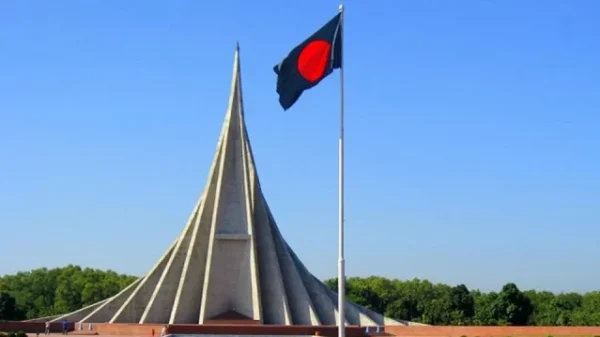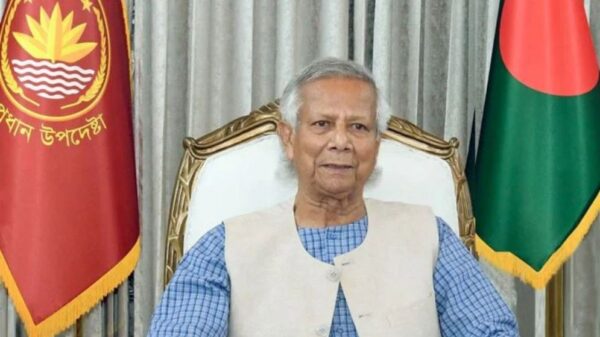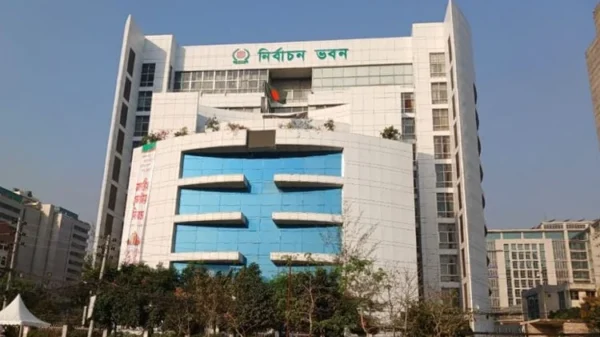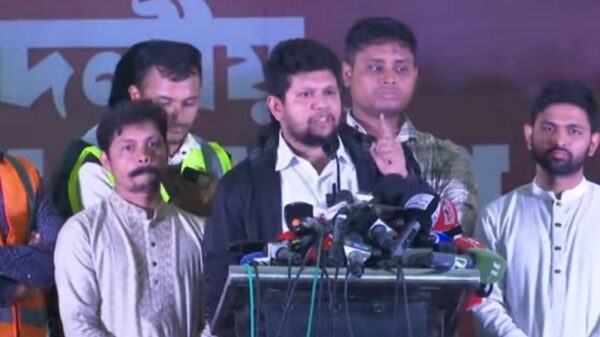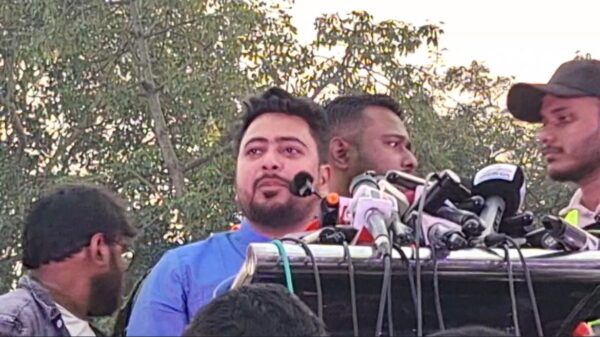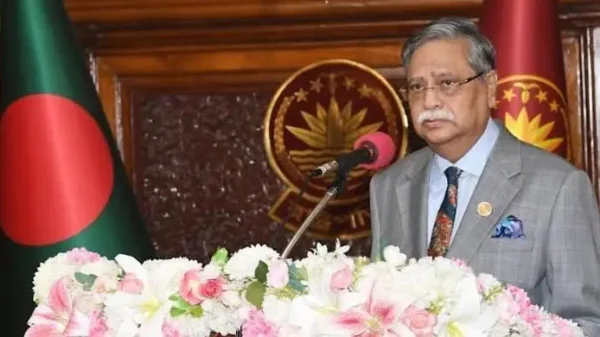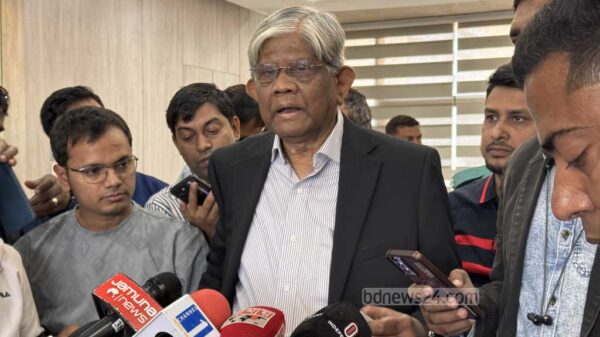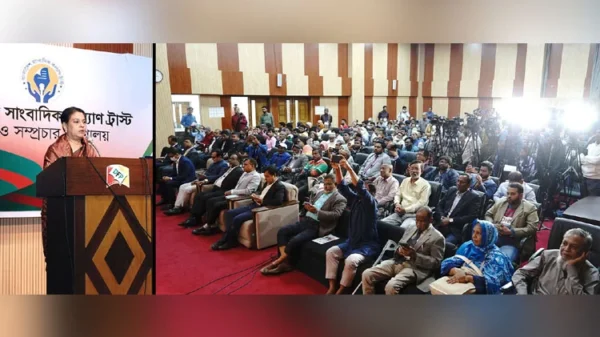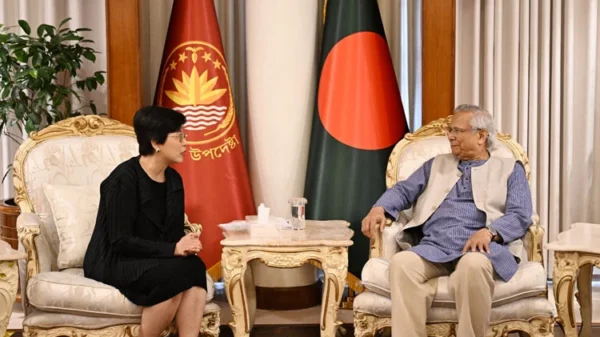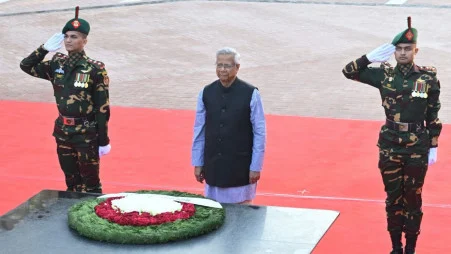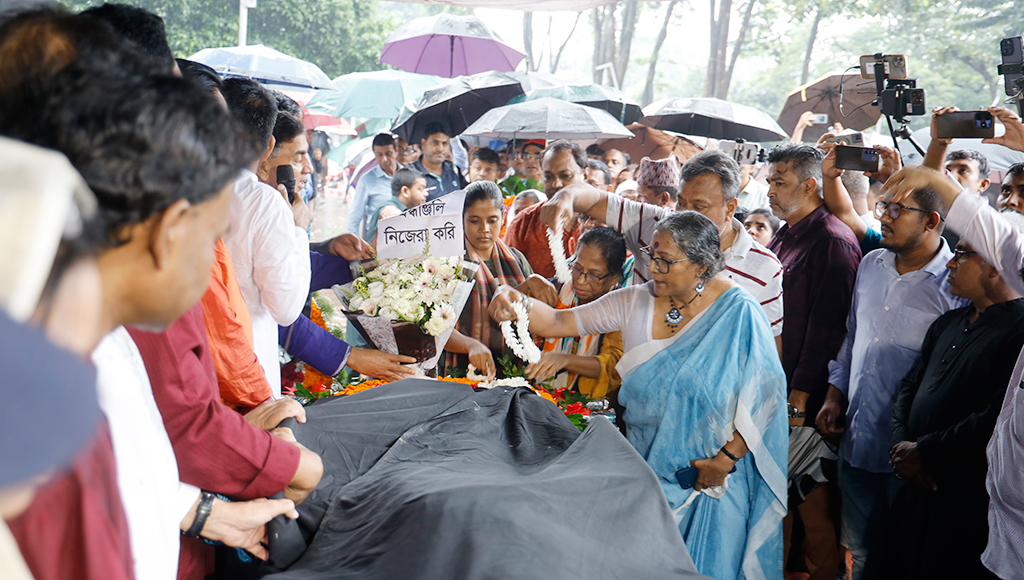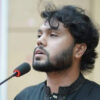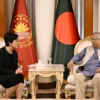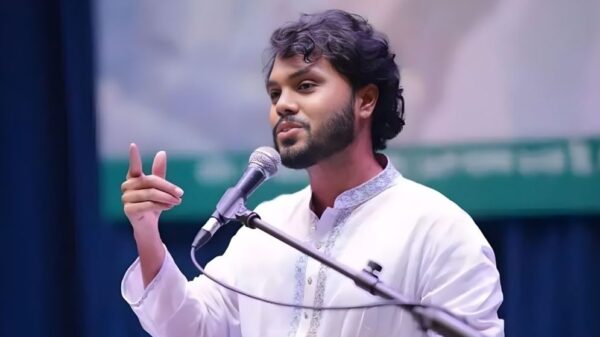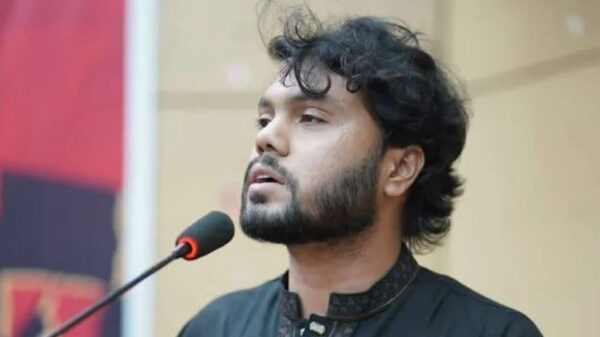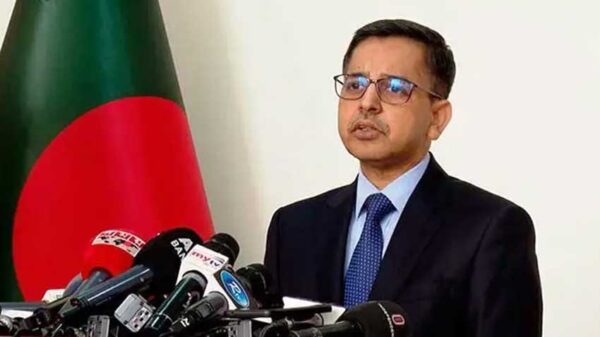Staff Reporter:
People from various walks, especially cultural society, paid their last respect to late popular folk and Lalon singer of the country Farida Parveen (body inside the coffin) at the central Shaheed Minar yester-day.
Her Namaz-e-Janaza was held at Dhaka University Central Mosque, after which she was taken to Kushtia. Thereafter the maghrib prayers, she will be buried at the Kushtia Poura graveyard beside her parents’ graves.
Her son Imam Nimeri Upol told journalists, “We will bury our mother in Kushtia, according to her wish.”
Farida Parveen was a great singer. Her song’s artistry transcended national boundaries, bringing the timeless philosophy and melodies of Lalon Shah to audiences around the globe.
Her soulful renditions of Lalon’s songs helped earn her revered titles such as “Lalon Konna” (Daughter of Lalon) and “Samraggi of Lalon Songs” (Empress of Lalon’s Music), reflecting her unmatched contri-bution to preserving and popularizing the bard’s legacy.
Timeless melodies such as “Satya Bolo Supothe Cholo”, “Ami Opar Hoye Bose Achhi”, “Barir Kache Arshinagar”, “Khachar Bhetor Ochin Pakhi”, “Jat Gelo, Jat Gelo Bole”, “Milon Hobe Koto Dine”, “Sa-may Gele Sadhan Hobe Na”, and “Tomra Bhulei Gecho Mallikadir Nam” –among countless others– will forever echo in the hearts of listeners. Her voice in Lalon’s songs touched the hearts, blending with spirituality and philosophy.
In Japan, Sweden, Denmark, Canada, Australia, the United States, the United Kingdom and other coun-tries across the world, her voice carried the philosophy of Lalon. In her rendition, Lalon’s songs became not merely music but a unique philosophy of life.
Born in Singra of Natore District, Farida Parveen was lively and playful as a child. She used to spend her days running and playing. Between her paternal and maternal homes, a branch of the Atrai river was flowed named Gur. Crossing the river, young Farida would move between her grandparents’ houses. Near her maternal home, a vast wetland was there where she and her cousins would gather water lilies.
Her childhood was largely spent in Magura, where she also began her schooling. It was then that she first learned music under Ustad Kamal Chakraborty. Owing to her father’s profession, she lived in different districts and studied in several schools.
Later, she resided in Kushtia for a long time, completing her SSC at Mir Mosharraf Hossain Girls’ School, HSC in 1974 at Kushtia Girls’ College, from where she also graduated.
In that town, she practiced Lalon’s songs extensively. From childhood, she admired the voice of Sandhya Mukhopadhyay. In 1968, Farida Parveen was enlisted as a Nazrul singer at Rajshahi Betar.
After Bangladesh’s independence, she developed a deep spiritual bond with Lalon’s music while staying in Kushtia. Their family friend Moksed Ali Sai introduced her to the Lalon song “Satya Bolo Supothe Cholo” in 1973, under whose guidance she received training.
After his death, she continued learning from Khoda Box Sai, Brajen Das, Behal Sai, Yasin Sai and Ka-rim Sai, gradually immersing herself into the depth of Lalon’s music.
Her first husband was noted lyricist and singer Abu Zafar, with whom she had three sons and one daugh-ter — Jihan Faria, Imam Nimeri Upol, Imam Nahil Sumon, and Imam Nomani Rabbi. Later, she married flute maestro Gazi Abdul Hakim.
For her outstanding contribution to music, Farida Parveen was awarded the ‘Ekushey Padak’ in 1987. In 1993, she won the ‘National Film Award’ in Best Singer category for the song “Nindar Kata” in the film “Andho Prem”. In 2008, she was honored with Japan’s prestigious ‘Fukuoka Prize’.
Eminent singer Farida Parveen passed away at 10:15 pm on Saturday at the Universal Medical College Hospital in the capital. She was 71. She is survived by her husband and four children.
Farida Parveen had long been suffering from kidney complications, requiring dialysis twice a week. On September 2, she was admitted to the Universal Medical College Hospital, Mohakhali, for her regular dialysis.


